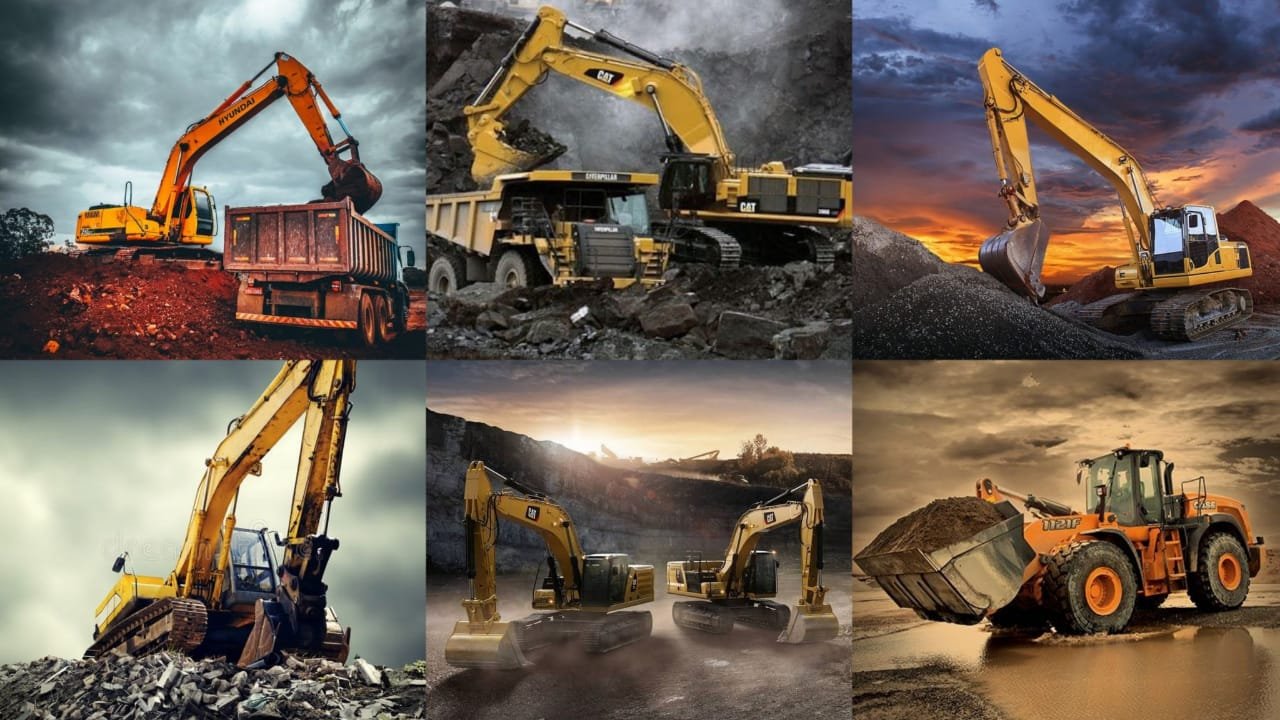
Read Time:2 Minute, 25 Second
- Excavators: These are heavy machines used for digging trenches, foundations, and holes. They have a bucket, arm, and cab mounted on a rotating platform above an undercarriage with tracks or wheels.
- Bulldozers: These are powerful tracked machines with a large metal plate (blade) on the front used to push large quantities of soil, sand, rubble, or other materials during construction.
- Loaders: These machines are used to load loose materials (such as sand, gravel, demolition debris, etc.) onto trucks or conveyor belts. They have a front-mounted square wide bucket connected to the end of two arms.
- Backhoe Loaders: These versatile machines combine the capabilities of a loader and an excavator. They have a digging bucket on the back and a loader bucket on the front.
- Graders: These machines have a long blade used to create a flat surface during the grading process. They are typically used for road construction.
- Dump Trucks: These are trucks equipped with a large, open bed for transporting various types of materials, such as sand, gravel, or demolition waste.
- Concrete Mixers: These vehicles are designed to mix concrete while transporting it to the construction site.
- Pavers: Used for laying asphalt on roads, parking lots, and other surfaces. They distribute and compress the asphalt mixture evenly.
- Cranes: These machines are used for lifting heavy materials, equipment, and structures. They come in various types, including tower cranes, mobile cranes, and crawler cranes.
- Compactors: These machines are used to compress and compact soil, gravel, concrete, or asphalt in preparation for construction.
- Drilling Machines: These are used for creating holes in the ground for various purposes, such as installing foundations, poles, or underground utilities.
- Demolition Equipment: This category includes machines like wrecking balls, hydraulic shears, and crushers used to tear down existing structures.
- Trenchers: These machines are used to dig trenches for laying pipes, cables, or drainage systems.
- Loaders-Backhoes (TLBs): These are versatile machines combining the capabilities of a loader and a backhoe.
- Forklifts: While commonly associated with warehouses, forklifts are also used in construction for lifting and moving heavy materials.
-
Market Research:
- Understand the demand for specific types of construction machinery in the UAE.
- Identify potential competitors and their offerings.
- Research any specific regulations or standards related to construction machinery in the UAE.
-
Compliance and Regulations:
- Ensure that your machinery meets UAE’s regulatory standards and specifications. This may include safety, emissions, and other technical requirements.
-
Documentation:
- Prepare all necessary export documents such as commercial invoices, packing lists, bill of lading, and any required certificates or licenses.
-
Establish a Distribution Channel:
- Consider whether you’ll sell directly to construction companies or work through distributors or agents in the UAE.
-
Local Representation:
- It may be beneficial to have a local representative or partner who understands the market and can assist with sales, distribution, and after-sales service.
We, WAMID GENENRAL TRADING LLC, does extensive import-export for Machineries as per specific requirement of the clients.


No Comments